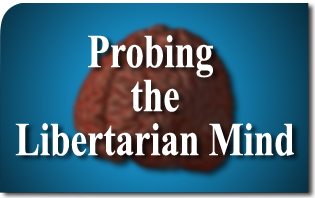 In reading David Boaz’s The Libertarian Mind (Simon & Schuster, 2015), one is struck by the difficulty of the task he has undertaken. It is hard enough to define a libertarian since, as Boaz admits, they come in so many brands and flavors. However, it is almost impossible to define the libertarian mind.
In reading David Boaz’s The Libertarian Mind (Simon & Schuster, 2015), one is struck by the difficulty of the task he has undertaken. It is hard enough to define a libertarian since, as Boaz admits, they come in so many brands and flavors. However, it is almost impossible to define the libertarian mind.
In fact, according to libertarian logic, there can be no “libertarian mind” since the collectivity of all libertarians cannot think. What can exist are the human actions and thoughts of individuals that freely choose how to follow what each perceives as libertarian tenets.
Perhaps that is what makes the book so stifling. By refusing to accept generalities, one is forced to individualize all things to infinity and thus be deprived of those broad horizons and grand ideals that make life so interesting and refreshing.
Boaz’s primer on libertarianism is all about the individual and stays micro-focused on choices and associations that make each person happy. Its central tenet is simple enough: “We should be free to live our lives as we choose as long as we respect the equal rights of others.”
The tenet is not problematic in a world where some kind of strong cultural heritage and moral framework exists. In fact, Boaz traces pre-libertarian origins to medieval times where Christianity introduced notions of human dignity, representative government and common law. Inside the close-knit medieval society, choices were maximized within the context of family, faith and community that led to an amazing development of freedom.
However, the Protestant reformation began the long fragmentation of the unity and moral framework of Christendom. The libertarian central tenet comes to be interpreted according to the Enlightenment boilerplate of denying man’s fallen nature and affirming the supremacy of reason. It easily degenerates into the ethos of what Brad S. Gregory so expressively called the “Kingdom of Whatever.”
Indeed, The Libertarian Mind is a mixture of “whatever” the individual deems to be his interest. “Whatever” can consist of the reasonable libertarian outcry against big government and abusive regulations, or its excellent affirmation of free markets, rule of law and property rights. But “whatever” also consists of the throwing off of moral restraints that inhibit gratification and self- interest. Thus, the author obsesses about the urgent need for same-sex “marriage,” the end to pornography restrictions, and the right to legal drug use.
Throughout his explanation, there is a failure to consider the effects of individual action upon others or society as a whole since each determines what it means “to respect the equal rights of others.” Habits like drug abuse, for example, are only seen from the individual’s perspective of happiness and not from that of spouses, children, and society at large, all of which are gravely affected by the person’s decision. There is little notion of the “common good” in the common libertarian mind. The common good is at best, the aggregate sum of the good of its parts.
In this vision of society, where society is viewed simply as a machine made up of the sum of its parts, relationships are reduced to contractual agreements whose members are free to mesh or separate with others as they see fit. Even a person’s link with God has an element of contract. There is a big difference between this society and an organic vision of society, where members resemble a family and see themselves like living cells in the context of the whole body.
In this sense, the libertarian “mind” seems more like a calculator of self-interest than the actual thinking organ. Such a society is operated as a co-op or corporation which can deliver benefits, dividends and abundance in as much as they serve each individual’s interest. But it lacks the warm social bonds of an organic society organized like a family. It is a bland secular society officially stripped of its spiritual elements, from which, to recall the words of Irving Kristol, we can expect “no high nobility of purpose, no selfless devotion to transcendental ends, no awe-inspiring heroism.”
Returning to a moral order allows the maximum human freedom and is a better choice than entering the Kingdom of Whatever.
As seen on AmericanThinker.com

